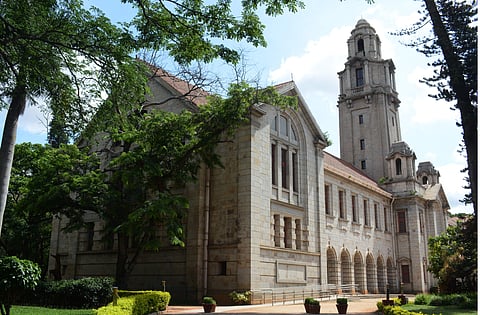

Researchers at the Indian Institute of Science (IISc) have achieved a breakthrough. Along with their collaborators, they have discovered a novel strategy to make better fast-charging solid-state batteries, which are set to replace the currently used lithium-ion batteries. The researchers have discovered how these next-generation solid-state batteries fail and have posited a solution.
Their research has been published in Nature Materials. The team collaborated with researchers from Carnegie Mellon University in the US for this study. It has been explained that with repeated or excessive use, the solid-state batteries develop thin filaments called 'dendrites', which can short-circuit the batteries and render them useless. The research team of IISc has identified the root cause of this dendrite formation and shown that adding a thin layer of certain metals to the electrolyte surface significantly delays dendrite formation, extending the battery's life.
"Unfortunately, when you add lithium, it forms these filaments that grow into the solid electrolyte and short out the anode and cathode," explains Naga Phani Aetukuri, Assistant Professor in the Solid State and Structural Chemistry Unit (SSCU) and corresponding author of the study.
To investigate this phenomenon, Aetukuri's PhD student, Vikalp Raj, artificially induced dendrite formation by repeatedly charging hundreds of battery cells, slicing out thin sections of the lithium-electrolyte interface and peering at them under a scanning electron microscope, as reported by IANS.
"When they looked closely at these sections, the team realised that something was happening long before the dendrites formed — microscopic voids were developing in the lithium anode during discharge. The team also computed that the currents concentrated at the edges of these microscopic voids were about 10,000 times larger than the average currents across the battery cell, which was likely creating stress on the solid electrolyte and accelerating the dendrite formation," the IANS report states.
"This means that now our task to make very good batteries is very simple. All that we need is to ensure that the voids don't form. To ensure this, the researchers introduced an ultrathin layer of a refractory metal, a metal that is resistant to heat and wear, between the lithium anode and solid electrolyte. The refractory metal layer shields the solid electrolyte from the stress and redistributes the current to an extent," says Aetukuri.
"What we are saying is different," explained Raj. "If you use a metal like tungsten or molybdenum that doesn't alloy with lithium, the performance which you get from the cell is even better. The researchers say that the findings are a critical step forward in realising practical and commercial solid-state batteries. Their strategy can also be extended to other types of batteries that contain metals like sodium, zinc and magnesium, as mentioned in the IANS report.
